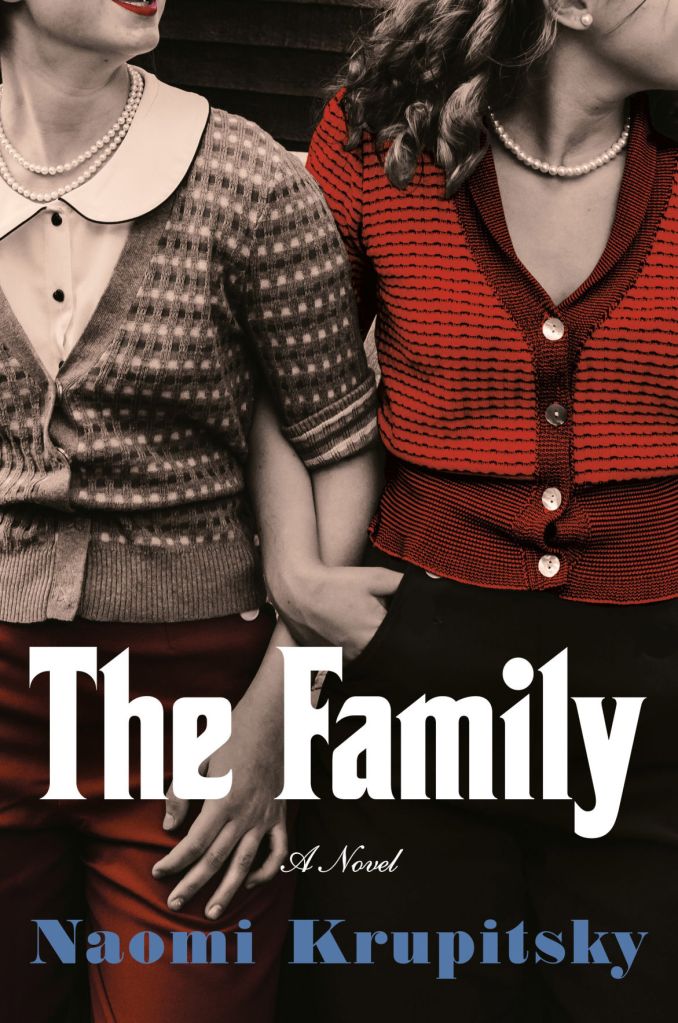Book review: ‘The Family’
Published 12:00 am Sunday, November 14, 2021

- BOOK REVIEW
“The Family” by Naomi Krupitsky. G.P. Putnam’s Sons. 368 pp. $27. Review provided by The Washington Post.
Some words come with baggage.
Charged with emotions and associations, a word like “family” sets up expectations – the idealized 1950s television version is especially powerful. So there’s a kind of kick to seeing those automatic assumptions overturned. In her debut novel, Naomi Krupitsky takes a deep dive into the meaning of family – both the idea and the reality – and emerges with a tale that’s vivid, authentic and filled with the unexpected.
Antonia and Sofia are best friends; they live next door to each other, and their fathers are high-ranking members of the Family – the mob Family. Sofia’s father, Joey Colicchio, is bold and powerful. Carlo Russo, Antonia’s father, is thoughtful, even sensitive. He detests the brutality of his work and the internal contradictions of trying to keep his terrifying boss happy while nurturing his young family. The girls, close as sisters and bonded by more than blood, spend holidays and Sunday dinners together, their bedrooms separated by a shared wall. They seem to float in a kind of ideal union.
But their quiet, stately lives will soon be transformed by tragedy. When Carlo abruptly disappears, Antonia’s world is shattered, and the peaceful coexistence of the neighboring families is destroyed.
From “The Godfather” to “The Sopranos,” the mafia has loomed large in the popular imagination, thanks to characters of startling intensity. Krupitsky’s novel has a different flavor. It’s less concerned with scenes of shocking violence and more with the emotional ripples surrounding that violence. The focus here is on homes, church, school and the lives of women and children – people who’ve found themselves, mainly through marriage or inheritance, affiliated with the mob. The men too are viewed through the lens of family and the unique, impossible tension of trying to balance brutality and love.
This tension is what makes “The Family” so striking – the way a life of violence becomes a backdrop for what is, in many respects, a rich yet ordinary human story. The two friends grow up and experience the classic predicaments and struggles of girlhood: They fight with their parents, fall in love – sometimes with the wrong people – and agonize over the trajectory of their futures. The difference is that their extremes are more extreme. It’s fascinating to watch a figure of terror like Joey almost completely undone by his sullen adolescent daughter. When Sofia falls for Saul, an unexpected and unsanctioned suitor, her confession to her parents unfolds in a scene of almost unbearable suspense. Joey is like all loving fathers – overprotective and mistrustful of the new beau; the difference is that Sofia’s father might literally murder the object of her affection. Krupitsky describes Joey’s reaction with chilling precision:
“Joey’s eyes are on Saul. His face is unreadable. His gaze is a needle, pinning Saul where he sits in his chair, like a specimen on a corkboard. He is silent for a moment, and when his voice comes it is clear and calm.”
Krupitsky depicts complex, internal states with restraint. This is the real pleasure of the novel – its careful, painstaking portrayal of emotional depth.
There is a special challenge to portraying intense, outsized acts and emotions in a way that feels immediate and true. By bringing readers into the intimate lives of these women, Krupitsky has achieved just that. There is a steady and timeless vitality to these stories. The savagery hanging over their lives is always there but remains just offstage, close yet artfully cloaked. Once you read this novel of blood and love, promises and betrayal, you may never look at family in quite the same way again.
– Reviewed by Diana Abu-Jaber, who is the author of “Birds of Paradise.”





